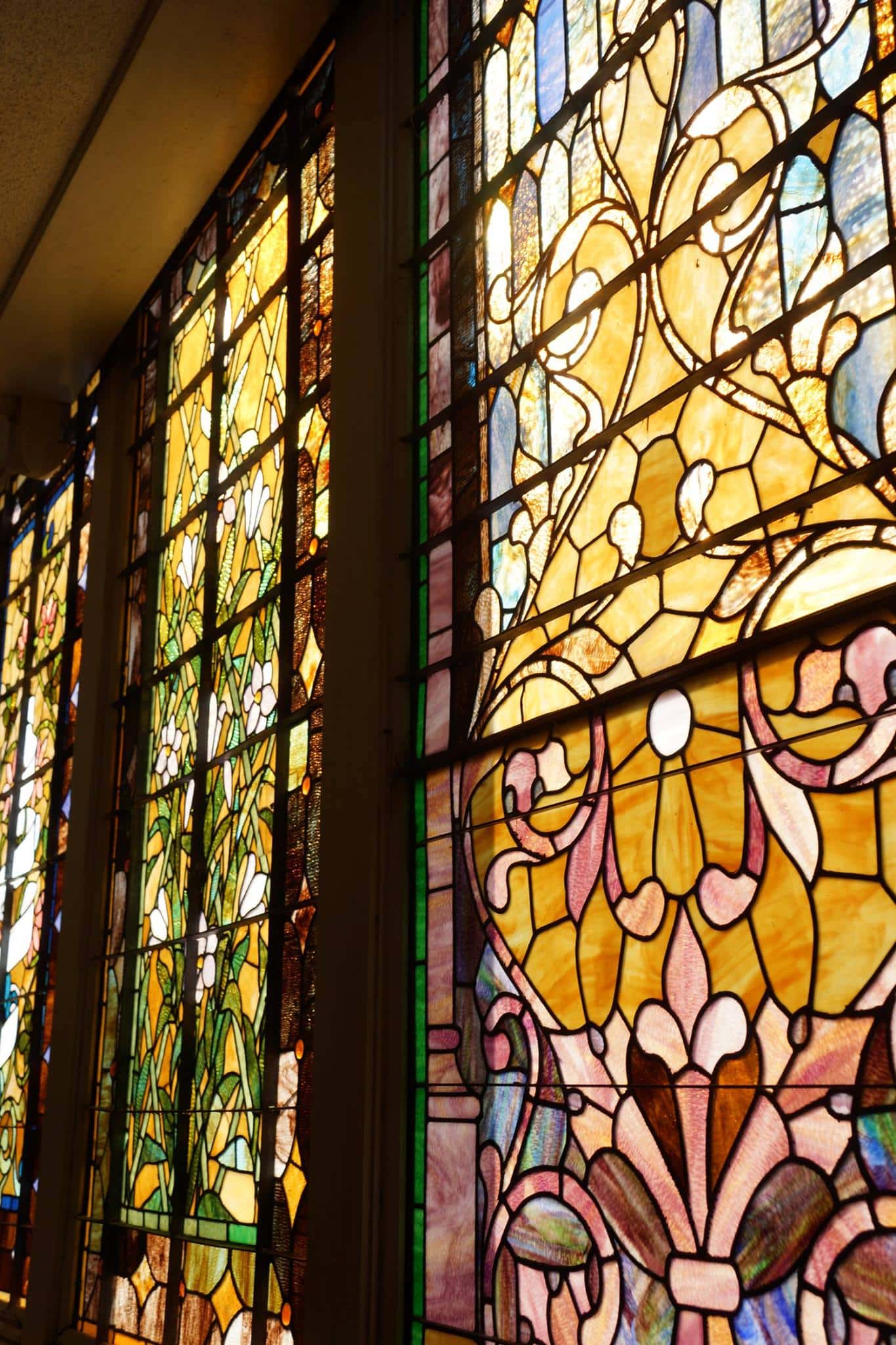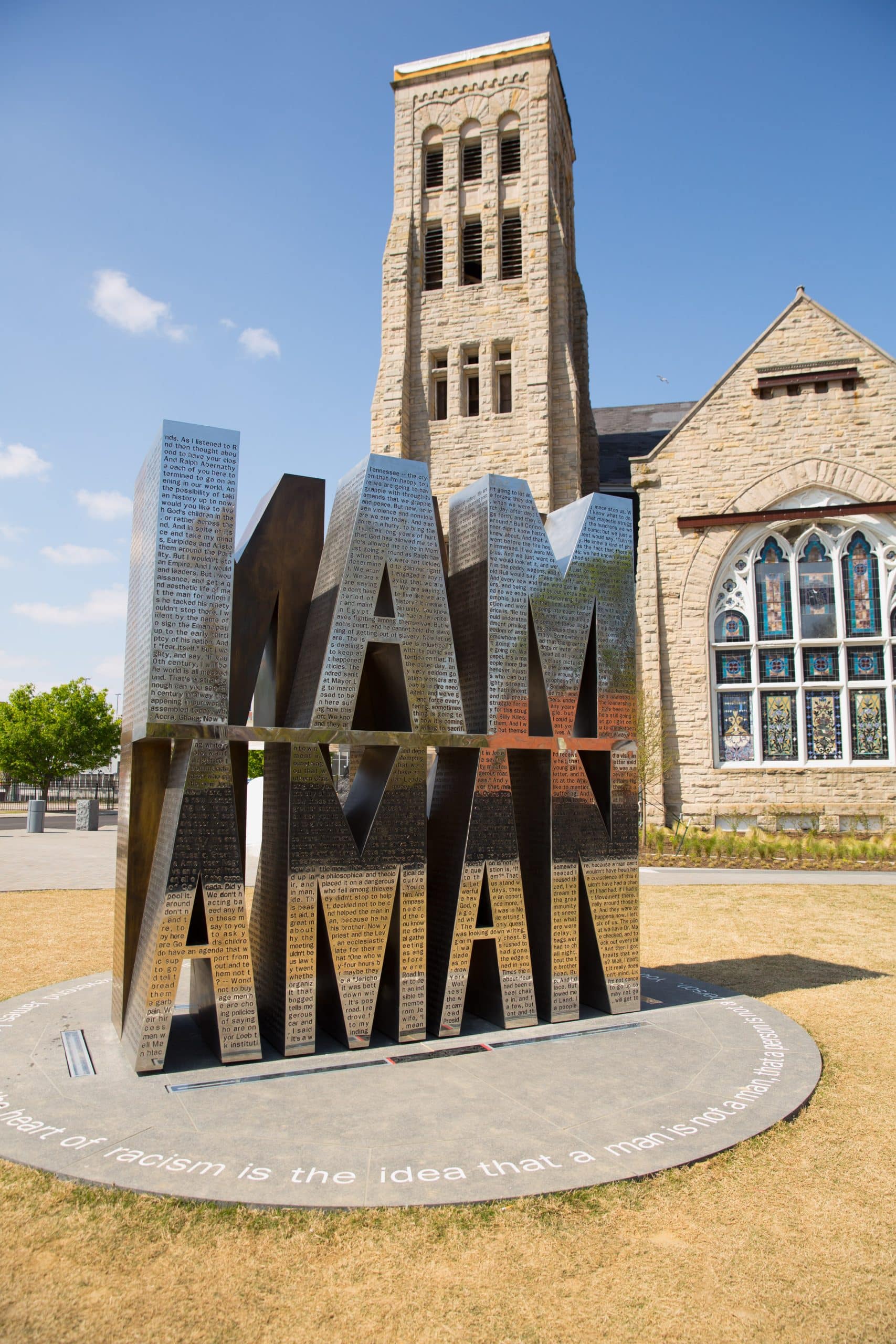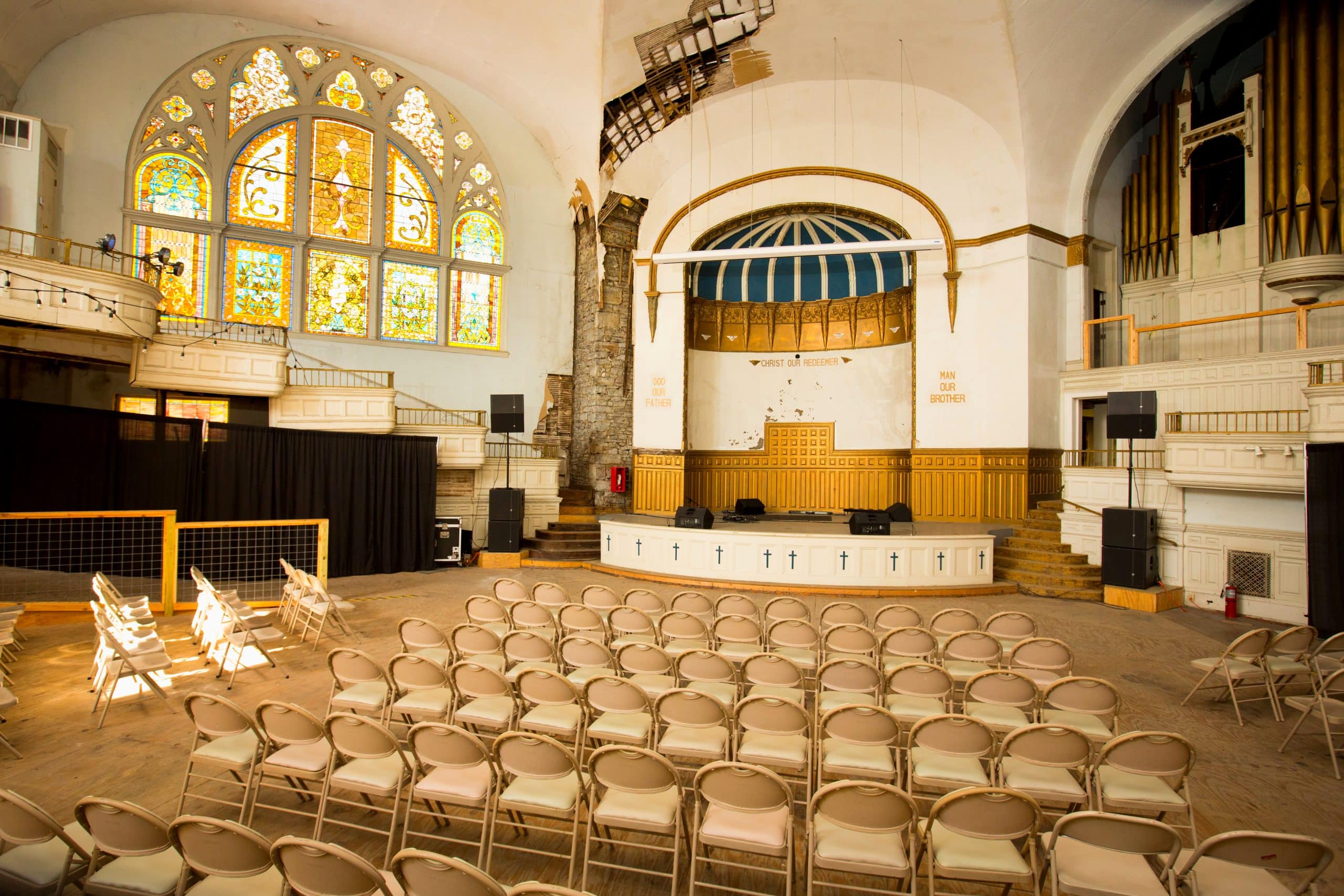Our Story
Our Mission
Historic Clayborn Temple engages in culture and the arts inspired by the participants of the 1968 Sanitation Workers’ Strike. Clayborn seeks to embody their declaration of the humanity and dignity of Black, poor, and working-class people and to continue their legacy of advancing human understanding through storytelling, engagement, and practice.
Our Story
Clayborn Temple has been a part of Memphis and American History since 1892. First built and opened as Second Presbyterian Church, in 1949 the building was sold to an AME congregation who changed the name to Clayborn Temple.
Because of its reputation in the community and proximity to City Hall, Clayborn was chosen as the organizing headquarters for The Sanitation Workers’ Strike of 1968, Martin Luther King’s last campaign. The campaign’s iconic “I AM A MAN” signs were made daily in Clayborn’s basement and have since become a universal symbol for human rights and dignity.

From the ashes
In 1999, Clayborn Temple closed and fell into disrepair, but it has since reopened and begun revitalization. Officially named a National Treasure in 2018 by The National Trust for Historic Preservation, Clayborn has come back to life with the promise of leveraging the stories of the past to tell the stories of our collective future.
Our mission, inspired by the 1968 Striking Sanitation Workers, is to continue their legacy of advancing human connection through storytelling, engagement, and practice. We do this by engaging in story, arts and culture, and embodying The Sanitation Workers’ declaration of humanity and dignity of black, poor, and working-class people.

A Memphis Tradition
While Clayborn Temple is currently closed for restoration, our organization continues to implement story driven, community-centered programs that align with our vision. When we reopen in 2024, we will do so as a premier cultural arts center connecting downtown and historically Black South Memphis. We will be a breathtaking central space for gathering, celebration, story, and connection.
While under construction, we continue to bring Memphians together to lay the foundation for the future of Clayborn’s community based programs and explore through creativity and imagination, the values for which The Sanitation Workers so valiantly fought.

The Renovation
The $14M restoration of our building will include the realization of performance space, gallery space, a museum that chronicles the history of the building and The Strike, a center for community centered restorative economics, a library, and rental space for meetings, events, celebrations, and other gatherings.
Our vision is to:
- See the building fully activated with robust arts programming featuring artists from Memphis and around the globe.
- See the mission fully activated so that the intention of The Strikers lives on in our community programs.
- Become a hub for Memphis’ thriving cultural economy and a home where all are welcome and safe to build community across race and class and work for the safety, freedom, and joy for all.

The Team
Anasa Troutman
Memphis-based Anasa Troutman is a writer, producer, & real estate developer who has dedicated her work to the importance of culture & the power of love. Anasa is a pioneer of cultural strategy & the building of narrative, economic, & political power. Anasa works hard to embody her belief in creativity as a transformative practice & engages art-making as a pathway to her own healing & spiritual expansion.Working at the intersection of culture and the economy, Anasa is the founder of The BIG We LLC, The BIG We Foundation, BIG We Capital, and Historic Clayborn Temple, home of the 1968 Sanitation Workers’ Strike in historically South, Black Memphis. She lives a life driven by love and an unwavering commitment to cultivating safe, abundant, and joyful communities through storytelling, community building, and strategic investment.
Anasa’s vision focuses on the wellbeing of Girls & Womxn as well as Black, Indigenous, LatinX, and AAPI communities. She believes a well culture translates to a just society, loving public policy, and community programs propelled by creativity, connection, and social innovation. Leaning into the future of social impact, Anasa’s cultural wellness framework and culture shift methodology come together to create a pathway toward healing, justice, and abundance. Through Culture Shift and Culture Shift 101, she has taught thousands of artists, organizers, and leaders the power and practice of culture and narrative-based social impact strategies.
Anasa’s unique brilliance and beautiful heart has propelled her to provide strategic and creative support to the country’s most important cultural, political, and social justice entities, including The Highlander Center, India.Arie, Kat Taylor, Kellogg Foundation, National Black Arts Festival, Sony Music, and more. Anasa been invited twice to the White House by the Obama administration to advise on cultural policy.
Brooke Sarden
Brooke Sarden has spent 20 years co-creating an equitable, thriving, and vibrant Memphis through her work with justice-serving, community-facing, and culturally rooted nonprofits. With a deep passion for the people and culture of her hometown, Brooke has established herself as a strong operational, creative, and community leader. In addition to 10 years as an Operations Director, Brooke's experience has included research and data, communications, grant-writing and programming for nonprofits including Memphis Area Legal Services, Memphis Fair Housing Center, Mid-South Peace and Justice Center, and Center for Transforming Communities, as well as Hattiloo Theatre and the Orpheum Theatre Group.Brooke is currently the Managing Director for Historic Clayborn Temple (Clayborn), which earned her commitment to serve for the expansiveness and deep humanity that is rooted in Clayborn's vision. As a Memphian, an artist, and a person always wanting be engaged in the best collective “human-ing” possible, Brooke is activating herself through Clayborn, working for a world where people are well in all the senses––included in community, valued, seen, heard in authenticity, inspired to pursue their own dreams and desires, connected to history, and moving toward the future in their own power.
